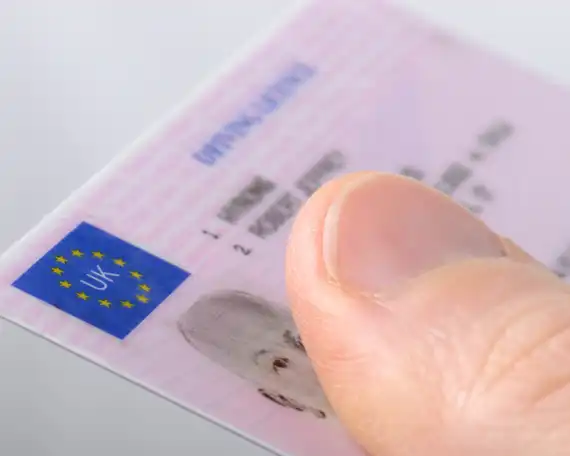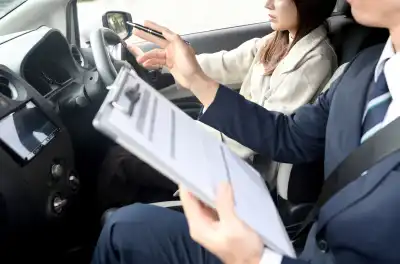
In the United Kingdom, a country known for stringent health and safety laws, deciding when you’re too old to drive is a matter that needs to be considered carefully.
So, what are the current guidelines? What potential challenges are there? And what support is out there to help older drivers work out if they should still be motoring?
Age Is No Barrier
Firstly, as apparent as it may be, it's important to clarify that there is no definite age for when you should stop driving.
We are all different, and while someone's eyesight could let them down in their 50s, someone who is fit, active and healthy could be a much safer driver well into their 90s.
As a result, age alone is an entirely unreliable indicator when determining your ability to continue driving.
The DVLA states that, as long as your health and ability to drive safely are not in question, you can continue driving – regardless of your age.
However, once you reach the age of 70, you must renew your licence every three years, which involves declaring your fitness to continue driving.
Your licence will expire when you reach this age, and the DVLA will send you a reminder and application form (called D46P) 90 days before your 70th birthday.

Medical Assessments
Medical assessments can play a role in discovering issues that could impact your ability to get behind the wheel.
Indeed, GPs have a responsibility to notify the DVLA if you have a condition that could affect your fitness to drive.
Visual impairment, dementia and other medical conditions could result in your licence being revoked or at least lead to additional assessments being required.

Self-Assessment
Driving brings independence to many of us, and it's natural that when we reach retirement age, we'd like to continue driving for as many years as possible.
For the sake of you and others, though, it's essential to take an honest, pragmatic approach; therefore, you must be realistic and truthful to yourself about whether you should be getting in the driver’s seat.
The Royal Society for the Prevention of Accidents (RoSPA) suggests that older motorists should undertake regular self-assessments, including, where required, medical assessments to verify their ability to drive safely.
RoSPA and the Institute of Advanced Motorists (IAM) also provide driver assessment courses specifically aimed at older drivers that offer advice and help to retain confidence behind the wheel.
But fundamentally, being aware of changes in your physical abilities and cognitive function, as well as seeking advice from healthcare professionals, are essential steps to take.
Research Favours Older Drivers
A study conducted by the IAM found that older motorists have lower accident rates per mile driven compared with younger age groups.
This research suggests that experience and increased caution when driving may more than compensate for declining reactions and abilities.
Nevertheless, it can be dangerous to drive excessively slowly. Yes, speed limits are maximums, not ‘the speed at which you must be driving’, but if you're reaching a point where you can't trust yourself to drive safely at the designated speed limit, this is a cause for concern.
Age-related changes inevitably impact driving skills, as research published in the British Medical Journal claims that drivers over 70 have an increased risk of being involved in accidents due to reduced visual sharpness and slower reaction times.
Support For Older Drivers
Numerous organisations offer support and advice to older drivers.
There is the Older Drivers Forum – a body that aims to advise on how to recognise changes in your driving as a result of ageing and how to cope and adapt to this.
It also provides more information on the assessment programmes offered by RoSPA and IAM, which we mentioned above, including services operated by local authorities across the country.
These aim to keep you driving for as long as possible while educating you in identifying and mitigating risks, providing guidance on the law and conditions that affect driving and helping with how to renew your licence.
Other organisations offer support, too, with Age UK advising on driving over the age of 70. Meanwhile, Driving Mobility provides information on motoring with specific disabilities, including those living with arthritis and after strokes.

Conclusion
Unless a medical practitioner declares you unfit to drive, it can be challenging to decide whether you should or shouldn’t be behind the wheel.
Determining an exact age is virtually impossible, and the decision is a complex one which individual drivers need to take personal responsibility for.
Constant honest self-assessment and consulting medical professionals will likely produce definitive answers. But for those who are uncertain, there is plenty of advice to help.
Professional driving assessments can help older drivers evaluate their fitness to get behind the wheel so they can make informed decisions about what to do.
By focusing on individual abilities, supporting education, and maintaining road safety standards, the UK strives to have the best of both worlds in recognising the importance of mobility in old age while preserving the safety of all road users, including you.




